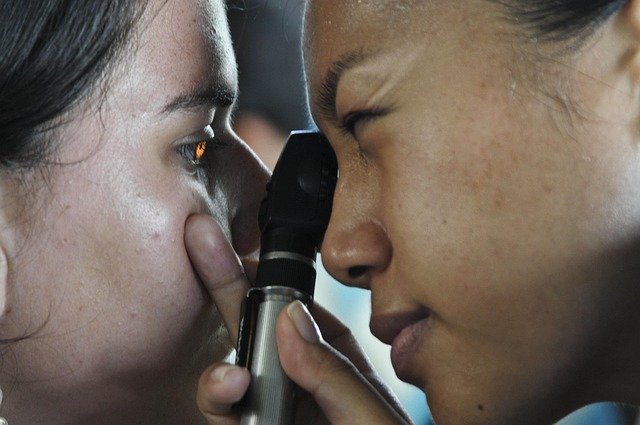Hepatitis Treatment: Modern Care for Liver Virus Disease
Hepatitis refers to inflammation of the liver, often caused by a virus but sometimes by toxins or autoimmune processes. Treatment has advanced substantially, with options depending on the hepatitis type, how long the infection has lasted, and any underlying liver damage. This article explains common treatment pathways, how the virus is diagnosed, and where to find medical services in your area. This article is for informational purposes only and should not be considered medical advice. Please consult a qualified healthcare professional for personalized guidance and treatment.

How does hepatitis affect the liver?
Hepatitis causes inflammation that can impair liver function, which is vital for detoxification, protein synthesis, and metabolism. Acute hepatitis may produce mild symptoms or jaundice and often resolves on its own, while chronic hepatitis can lead to fibrosis, cirrhosis, or liver cancer over years if untreated. Monitoring liver enzymes, imaging, and specialist consultation help determine the degree of liver injury and guide appropriate treatment to prevent long-term complications.
What causes the hepatitis virus?
Several viruses cause hepatitis: hepatitis A, B, C, D, and E are the most recognized. Transmission varies by type — for example, hepatitis A and E are commonly food- or waterborne, while B, C, and D spread through blood and bodily fluids. Nonviral causes include alcohol, certain medications, and autoimmune disease. Identifying the specific virus is essential because it dictates antiviral choices, public-health measures, and vaccination strategies to prevent spread and protect the liver.
How is hepatitis disease diagnosed?
Diagnosis begins with history, risk-factor assessment, and physical exam, followed by blood tests for liver enzymes and specific viral markers. Serologic tests distinguish acute versus chronic infection and identify the virus type. Imaging such as ultrasound can evaluate liver structure; transient elastography or biopsy may assess fibrosis. Accurate diagnosis is a medical step that informs treatment planning, monitoring frequency, and whether referral to hepatology or infectious disease specialists is warranted.
What medical treatments are available?
Treatment varies by hepatitis type. Hepatitis A and E typically need supportive care and hydration, with recovery expected in most cases. Chronic hepatitis B and C have effective medical therapies: antiviral medications can suppress HBV replication and, with current direct-acting antivirals, cure the majority of HCV infections. Hepatitis D requires management of HBV co-infection. Treatment also addresses complications — managing cirrhosis, screening for liver cancer, and considering liver transplantation when necessary. Side effects and monitoring plans are set by medical teams.
How to manage chronic hepatitis and liver health
Long-term management focuses on suppressing viral activity, protecting remaining liver tissue, and preventing complications. This includes adherence to prescribed antivirals, regular monitoring of liver function and viral load, vaccination against hepatitis A and B when appropriate, and lifestyle measures such as avoiding alcohol, maintaining a healthy weight, and controlling metabolic conditions. Mental health and social support can be important, as chronic disease management often requires sustained medical follow-up and coordination with local services.
Providers and clinics offering hepatitis treatment and liver care vary by region but typically include major medical centers, specialized hepatology clinics, and national health systems that provide testing, antiviral therapies, and transplant services. Below is a selection of reputable providers known for liver and hepatitis services; check local services in your area for specific access and referral pathways.
| Provider Name | Services Offered | Key Features/Benefits |
|---|---|---|
| Mayo Clinic | Hepatology, viral hepatitis diagnosis, antiviral therapy, transplant referrals | Multidisciplinary liver teams, comprehensive diagnostics, patient education |
| Cleveland Clinic | Liver disease clinics, hepatitis treatment, liver transplant programs | Integrated care with hepatology and infectious disease specialists |
| Johns Hopkins Medicine | Hepatitis testing and treatment, clinical trials, transplant evaluation | Strong research programs and personalized treatment planning |
| NHS (England) | Public hepatitis screening, vaccinations, antiviral treatment pathways | National screening programs and standardized care guidelines |
| Local hepatology clinics in your area | Outpatient management, monitoring, referrals to tertiary centers | Accessible follow-up care and coordination with community services |
Conclusion
Hepatitis treatment today ranges from short-term supportive care to highly effective antiviral regimens and liver transplantation for advanced disease. Early detection, correct identification of the viral type, and prompt engagement with medical services improve outcomes and protect liver health. Coordination between primary care, specialists, and local services helps ensure appropriate monitoring and access to therapies tailored to each person’s medical needs.






